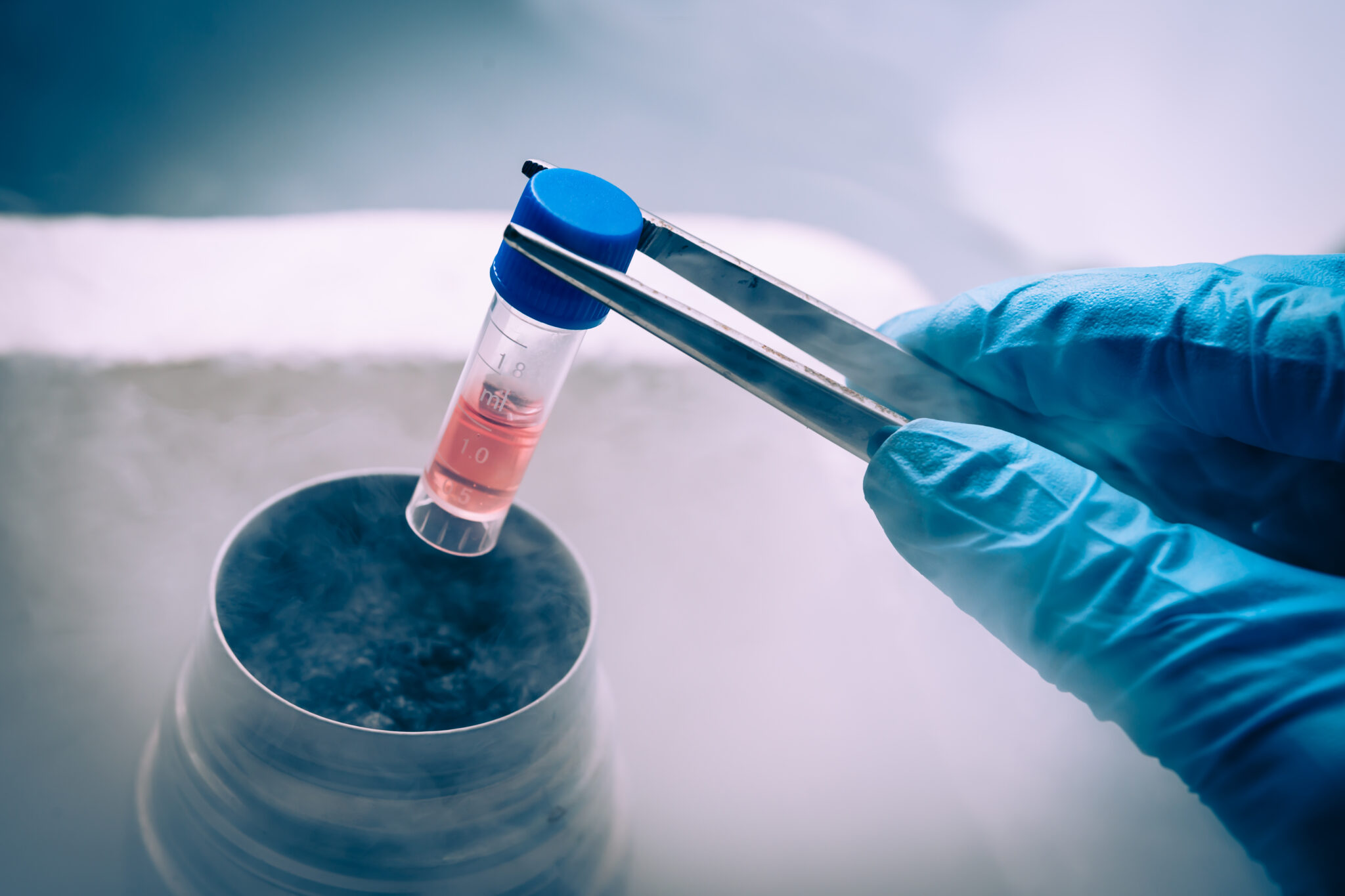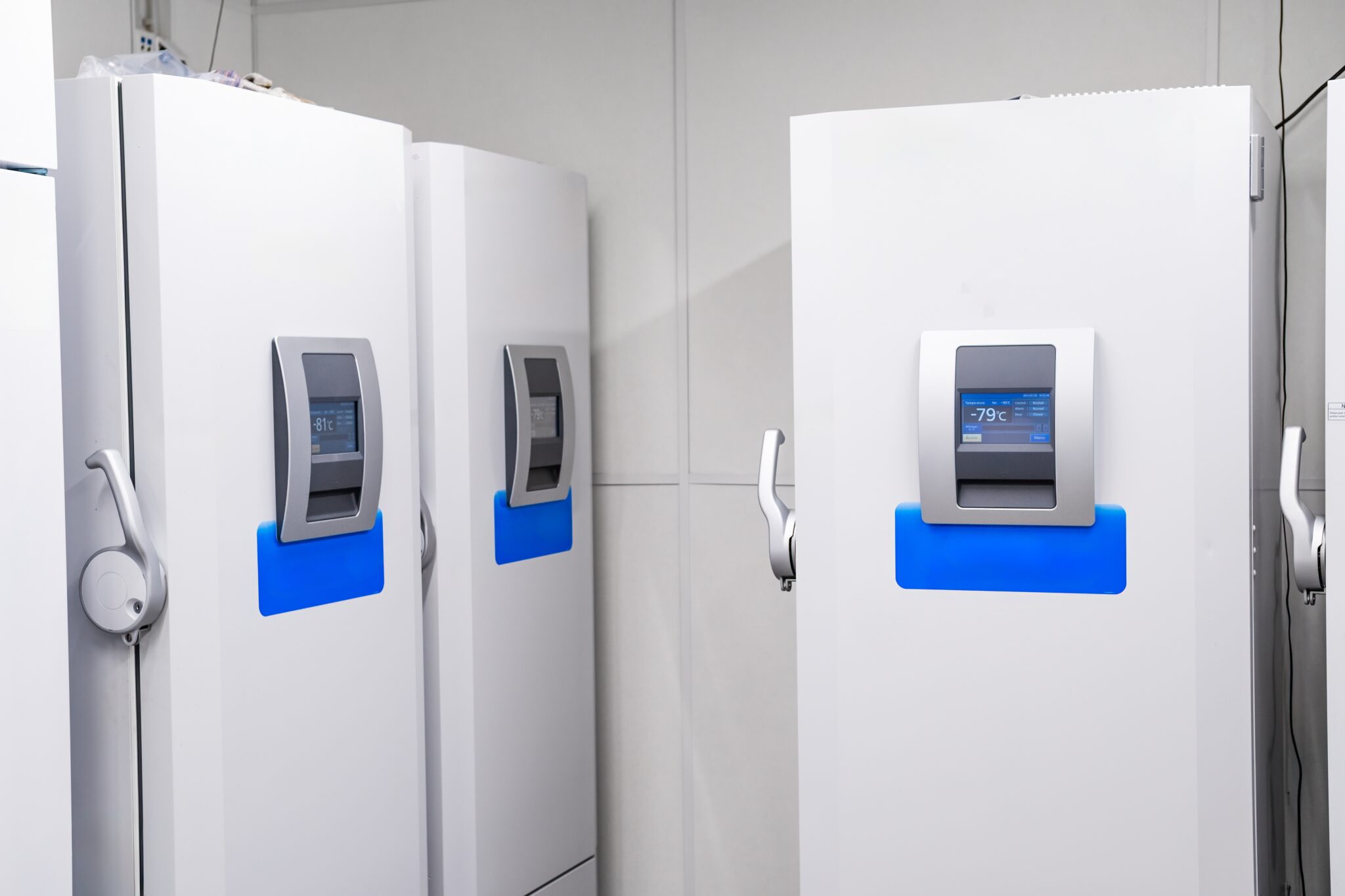A Comprehensive Guide to Biological Sample Storage Best Practices
Biological sample storage is vital to scientific research, medical diagnostics, and therapeutic developments. It involves preserving various biological samples, such as blood, tissues, DNA, and cells.

Understanding Biological Sample Storage
Every sample has unique storage requirements to maintain its integrity and prevent degradation. For example, blood samples are often refrigerated, while DNA might require freezing at much lower temperatures. Depending on their future use, tissue samples may be preserved in different fixatives or frozen to keep cellular structures intact.
Temperature control provides an environment where biological activity is minimized to preserve the sample’s original characteristics. This is achieved through refrigeration (2-8°C) for short-term storage, deep freezing (-80°C), and even cryopreservation in liquid nitrogen (-196°C) for long-term storage. These conditions help slow down enzymatic reactions and microbial growth, which can alter or damage the samples.
Contamination prevention is another critical aspect. Samples must be handled in sterile conditions to avoid introducing bacteria, viruses, or cross-contamination between samples. Contamination prevention often involves using aseptic techniques, sterile containers, and working within a biosafety cabinet. Accurate labeling and documentation are crucial to tracking the sample’s origin, storage conditions, and any treatments it has undergone.
Long-term preservation is also essential for the sustainability of biological resources. It allows for the future reanalysis of samples for new research questions or validation of past results. Ensuring the viability and integrity of samples over years, or even decades, requires meticulous planning, reliable cooling systems, and regular monitoring of storage conditions.
The Importance of Sample Integrity
Maintaining the integrity of biological samples is crucial across various fields, including medicine, forensics, and environmental studies. It plays a pivotal role in the accuracy and reliability of results. In each of these fields, the sample’s integrity is vital; even minor degradation or contamination can lead to misleading conclusions, impacting research outcomes, legal judgments, and environmental policies.
Temperature Regulation
Temperature regulation is essential for preserving the integrity of biological samples. Different samples require specific storage temperatures to prevent degradation. For example, refrigeration at 2-8°C can be suitable for short-term storage to ensure blood samples’ components remain stable.
DNA and some tissue samples often require freezing at -80°C or lower to halt enzymatic activity that could break down the sample. Cryopreservation at -196°C using liquid nitrogen is utilized for the long-term storage of cells and some tissues to preserve their structural integrity and functionality.
Contamination Prevention
Stringent measures are adopted when handling and storing biological samples to prevent contamination. Proper handling procedures minimize human contact and the introduction of external contaminants. These guidelines include wearing gloves, using sterile tools, and conducting procedures within a biosafety cabinet when necessary.
Using sterile containers ensures that samples are sealed off from potential contaminants in the environment. Additionally, protocols for the disinfection of storage areas and regular monitoring for signs of contamination are in place to maintain a clean storage environment.
Challenges in Biological Storage
Biological sample storage faces several challenges that can compromise sample integrity. Temperature fluctuations are common, especially in facilities with inadequate cooling systems or during transport. These fluctuations can cause thawing and refreezing, significantly degrading sample quality.
Contamination risks arise from improper handling, equipment failure, or environmental exposure, leading to compromised results. However, adhering to regulatory standards and best practices helps ensure samples are stored under optimal conditions. These challenges necessitate robust systems and protocols to mitigate risks and maintain the high-quality standards required for biological samples.
Best Practices in Biological Sample Management
Effective management of biological samples is critical for the success of research and diagnostic processes. Best practices in sample management help protect the integrity and reliability of samples and make them easier to retrieve and use. Adhering to these practices enables laboratories and repositories to prevent sample degradation or loss and safeguard the valuable information they contain.
Proper Collection and Initial Handling
Maintaining sample integrity begins at collection. Proper collection and handling are pivotal in preserving samples’ biological and chemical properties.
This process involves using the appropriate collection containers, immediately processing or stabilizing samples according to their nature (e.g., blood, tissue, or environmental samples) and promptly transferring them to designated storage conditions.
For example, some samples may require stabilization with specific buffers or chemicals to prevent degradation before they are frozen or analyzed. These initial steps are crucial; even the most sophisticated storage facilities cannot reverse damage caused by improper handling at this early stage.
Effective Labeling and Documentation Strategies
Adequate labeling and documentation are the backbone of biological sample management. Every sample should accompany a detailed label that withstands storage conditions and clearly identifies the sample. This labeling should include critical information such as the sample type, date of collection, and unique identifiers.
Comprehensive documentation that records every detail of the sample’s lifecycle—from collection through processing, storage, and eventual disposal or use—is essential. Detailed documentation ensures traceability and makes it easier for researchers to understand the sample’s history and context. Accuracy and consistency in record-keeping facilitate compliance with regulatory standards and ensure that samples can be accurately interpreted and utilized in future research.
Advanced Tracking and Retrieval Systems
Modern technologies like barcoding and digital databases enable precise management of vast collections and quick sample location and retrieval. These systems reduce human error, improve efficiency, and provide an audit trail for each sample’s handling and storage conditions.
Digital management systems can also facilitate complex searches, enabling researchers to identify samples that meet specific study criteria. Integrating these tracking systems with temperature and humidity monitoring technologies ensures that storage conditions are continuously optimized, further safeguarding sample integrity.
Technological Innovations in Biological Storage and Management
Technological advancements in biological storage continuously improve how we store, track, and receive samples. These innovations enhance biological sample storage’s efficiency, accuracy, and safety, ensuring that samples retain their integrity over time and are readily available for research and diagnostic purposes.
One essential advancement in this area is the development of Laboratory Information Management Systems (LIMS). LIMS are sophisticated software platforms designed to manage every aspect of laboratory operations, from sample logging to storage location, processing data, and results analysis.
These systems offer unparalleled precision in tracking sample life cycles, automating workflows, and minimizing manual errors. With features such as barcode scanning, real-time data access, and integration with analytical instruments, LIMS streamlines laboratory operations and enhances each sample’s traceability.
Precision Stability Storage has pushed the envelope with our state-of-the-art biostorage services, which incorporate proprietary cooling technology and smart monitoring systems.
Our cooling technology ensures that samples are stored at precise temperatures, which is crucial for maintaining the viability of temperature-sensitive materials. This is particularly important for samples that require long-term storage under specific conditions, as even slight deviations in temperature can lead to irreversible damage.
The integration of smart monitoring systems also provides continuous oversight of storage conditions, alerting laboratory personnel to real-time fluctuations or potential issues. This proactive monitoring approach helps preempt problems before they compromise sample integrity.
These technologies not only bolster the reliability and reproducibility of scientific research but also enhance operational efficiencies, allowing laboratories to scale their operations without compromising on quality or compliance.

How Biological Sample Storage Protects Research
Proper storage of biological samples is not just a procedural necessity—it’s a safeguard against the potential loss of years of research and irreplaceable materials. These samples are often the foundation of groundbreaking scientific advancements.
Modern offsite biostorage facilities play a pivotal role in mitigating risks through advanced technologies. Key advantages of offsite biostorage services include:
- Enhanced Security and Monitoring: Continuous surveillance and automated alerts safeguard samples against unauthorized access or environmental deviations.
- Disaster Recovery and Risk Mitigation: Facilities equipped with backup systems and geographic redundancy protect irreplaceable samples from natural disasters and technical failures.
- Regulatory Compliance and Expert Handling: Adherence to FDA, HIPAA, and GxP standards ensures ethical and safe sample management.
Explore Precision’s Cutting-Edge Biological Sample Storage Solutions
Effective biological sample storage and management ensure the reliability of scientific findings, the development of medical treatments, and, ultimately, the advancement of human health.
Precision’s state-of-the-art equipment and services cater to the diverse and specific requirements of biological storage, incorporating proprietary cooling technology, smart monitoring systems, and seamless integration with Laboratory Information Management Systems. These innovations ensure that samples are maintained optimally, safeguarding their integrity and the invaluable data they contain.
Contact us to request a quote or learn more about how our cutting-edge solutions can enhance your research and diagnostic outcomes and preserve your valuable biological samples.
